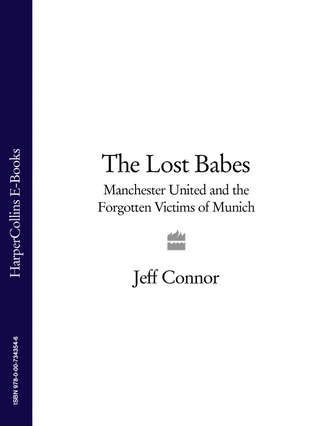
Полная версия
The Lost Babes: Manchester United and the Forgotten Victims of Munich
4 A SMALL FIELD IN GERMANY
For the majority of the Busby Babes, the first trip abroad, and their first flight, was to an international youth tournament in Zurich in May 1954. The party was led by Busby and Murphy, supported by Bert Whalley and Arthur Powell, a groundsman who was also a qualified St John’s Ambulanceman. Among the fifteen players were Edwards, Charlton, Pegg, Scanlon, Colman and Whelan. This was the nucleus of the effervescent young team who had won the FA Youth Cup for the first of five times the previous season.
Zurich was a voyage of discovery in many ways. The players had to cope with the logistics of applying for a passport for the first time, packing a suitcase to cope with the demands of a week away from home and attempt to cope with the Swiss currency. Busby had also, with a nod towards his chain-smoking staff, Powell and Murphy, warned of the penalties of attempting to bring too many packets of duty-free cigarettes back through Customs, and the perils of foreign foods.
The departure point was Ringway Airport, the forerunner of Manchester International, and named after the road close by the original site in Wythenshawe. Ringway had been opened in 1938, but it was not until 1952 that the airport began twenty-four-hour operations and by 1954 it was handling over 163,000 passengers annually. Air travel, however, remained a massive adventure outside the compass of many…and far from the magic carpet ride it is today.
The departure lounge at Ringway was adorned with vases on the window ledges and chairs with Lloydloom plastic backs and sides and, until passengers passed through the door marked Departures and stepped on to the runway tarmac, it was also exclusively all-smoking. Three civilians working in shifts manned the radar station and the method of communication between control tower and incoming and outgoing aircraft was by hand-held telephones.
On board, travellers were cosseted by bilingual air stewardesses (two languages at least were the main qualification before female airline staff were forced to look, and dress, like uniformed Barbie dolls) and in those pre-hijack days food was dished up with silver service. Inside the cabin, most aircraft used on commercial flights featured a collapsible mid-cabin table with chairs facing both fore and aft, a boon to families with children. Later, these tables were to prove just as useful to Manchester United and its enduring, and highly competitive, card school, of which Harry Gregg was the acknowledged Amarillo Slim.
The flight to any city in Europe took little longer than it does today, because in skies almost free of traffic there was no necessity to climb to altitude. The flightpaths to Europe were seldom above 5,000 feet and cabins were not pressurized. The journey gave United’s young travellers the opportunity to learn the realities of this new form of travel—that some were good fliers but others chronically bad.
Scanlon, Pegg and Colman revelled in the great adventure while Edwards, despite his schoolboyish fascination with the concept on his day trips to Ringway, found the experience terrifying. Like his captain Byrne, another notoriously bad traveller, he was well aware of the high-profile problems with the Comets of the British Overseas Aircraft Corporation which had culminated in a series of fatal crashes in 1953-54 and resulted in the loss of 111 lives in all. Much nearer home, and just eleven months before Munich, a BEA Viscount Discovery had demolished a row of houses on Shadow Moss Road in Wythenshawe on its approach to Ringway, with all twenty-seven passengers killed. These disasters, coming in the early days of commercial flights, did nothing to allay the players’ fears that this was a form of transportation to be tolerated, and occasionally feared, rather than enjoyed. Paying customers, too, plainly needed unqualified faith in pilots and groundstaff.
That first airborne adventure, however, went without a hitch and United’s week in Switzerland proved a resounding success. They began the tournament in less than convincing fashion with a 0-0 draw against FC Young Fellows, a Zurich club side, but decisive wins over Bern and Red Star earned them the silverware in resounding fashion. The Yugoslavs, in particular, simply could not handle the seventeen-year-old Edwards who had made his first-team debut twelve months earlier and who, within a year, would become a fully fledged England international. The brawny teenager, with hapless opponents bouncing off him like small-arms fire off a tank, helped himself to a hattrick. Boys against a man-boy.
Конец ознакомительного фрагмента.
Текст предоставлен ООО «ЛитРес».
Прочитайте эту книгу целиком, купив полную легальную версию на ЛитРес.
Безопасно оплатить книгу можно банковской картой Visa, MasterCard, Maestro, со счета мобильного телефона, с платежного терминала, в салоне МТС или Связной, через PayPal, WebMoney, Яндекс.Деньги, QIWI Кошелек, бонусными картами или другим удобным Вам способом.



